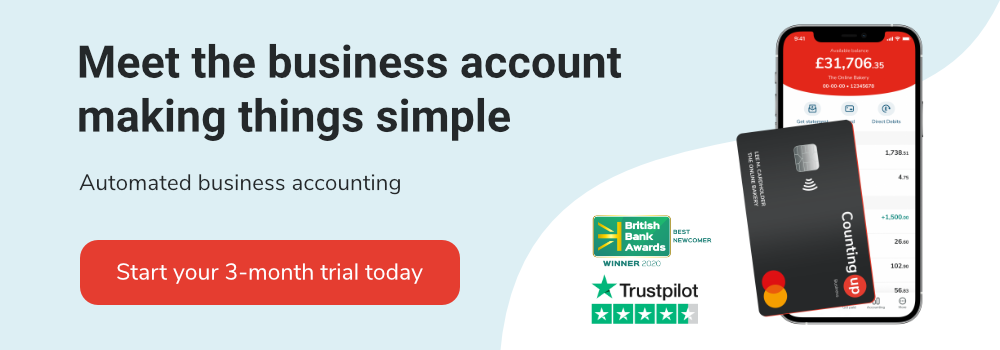How to organise business finances: 8 essential tips
Table of Contents
When you run a small business, it’s easy to fall behind on your financial management. Let’s face it; you’re busy. So, it’s important to check in with your finances now and then to update them for success.
The prospect might seem overwhelming, but it doesn’t have to be. We can show you how to reorganise business finances to prepare you to operate better. Plus, doing so can increase the efficiency of your financial management and promote profitability.
This guide covers eight tips for organising your business finances:
- Unify your finances
- Set aside time for financial management
- Analyse your spending
- Check your earnings and cash flow
- Use apps to save time
- Update your system
- Create fresh objectives
- Seek advice from experts
8 great ways to organise your finances
1. Unify your finances
The first step to knowing how to organise business finances is checking in with the current state of things. Where do you keep your money, and what are your spending methods?
For example, if you don’t have one already, open a business current account to separate your business finances from your personal transactions.
This account is a critical tool for organising your money. It can keep all your transactions in one place. Plus, you won’t have to pull relevant transactions from your personal account, which saves you time.
On top of this, check how you spend your money. Do you use a debit card alongside a business credit card? If you notice your spending is spread out across too many methods, try consolidating to track them more easily.
2. Set aside time for financial management
Consider scheduling a weekly check-in to update and organise your financial records. Dedicating regular time to it can help you avoid built up clutter and notice any red flags.
Then, set aside a more comprehensive look-over at the end of each month so you can examine your habits and spot any omissions or errors.
Regularly scheduled financial organisation time makes it so much easier to stay on top of things and maintain organised records throughout the year.
3. Analyse your spending
Think about conducting spend analysis with your business expenses. In other words, you’ll examine your spending behaviour to find patterns and trends. These insights will help you organise and plan for future spending.
When analysing your spending, break your expenses into clear categories to see where you focus your spending.
As a result, you can flag wasteful spending and find cost-cutting opportunities for better spending decisions. On top of this, spending analysis allows you to create a more realistic budget and financial planning.
See also: How to create a monthly business budget – with template.
4. Check your earnings and cash flow
Knowing how much money you earn for your business is also essential to organising your finances.
So, calculate the revenue you bring in and create an income statement. This way, you can determine your financial performance and establish a plan to grow your sales.
On top of this, assess your cash flow, or the money coming into and out of your business. Looking at these trends can help you understand your cash availability and how easily you cover regular expenses.
5. Use apps to save time
It’s much easier to organise your finances with the right tools that simplify and automate the process. The Countingup app can do just that.
Countingup is the business current account and accounting software in one app. It automates time-consuming bookkeeping admin for thousands of self-employed people across the UK.
With this app, you can worry less about your financial organisation. Countingup can keep you organised with:
- Automatic expense categorisation and receipt capture to organise your spending
- Cash flow insights to quickly assess the money coming in and out
- Year-round tax estimates to plan ahead for these expenses
- Unlimited invoicing on the go to secure the money you earn
Save yourself hours of accounting admin so you can focus on growing your business.
Start your three-month free trial today.
6. Update your system
Another way to organise your finances is to analyse your financial accounting system to ensure efficiency.
You might want to update these processes to make them easier to manage. For example, you could digitise physical records or develop a colour-coded system that makes sense to you.
See also: Accounting problems faced by small businesses.
7. Create new objectives
A huge part of how to organise business finances is having clear objectives. As you rearrange things, consider updating these objectives to clarify your financial management.
For example, you might decide to put a certain amount of money aside each month to prepare for tax expenses or develop a plan to pay off debts.
8. Seek advice from experts
If you struggle to keep up with your financial organisation, you might want to invest in help from an expert. You could seek a bookkeeper or an accountant to help you organise your finances and provide advice.
Doing so could save time and guide you towards more consistent organisation and stronger finances.
See also: how to find an accountant for your business.
Know how to organise business finances for success
Thinking about your financial organisation methods will help you avoid losing track of things and stressing about your money.
With more organised money, you can better understand your financial habits and business performance, and make better decisions.
As you clarify your finances and get everything in order, you might want to focus on how you can develop them in the future. Next, you might want to check out our article on creating a small business growth plan.
Receive actionable business tips weekly
By submitting this form, you confirm that you are 16 years of age or over and that you have read and agree to our Privacy Policy. You can unsubscribe at any time.




